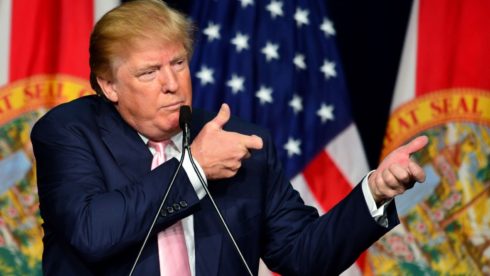President-elect Donald Trump is reportedly planning to issue an executive order to ban transgender individuals from serving in the United States military. According to insider reports, this policy aims to reverse inclusive measures introduced by the Obama administration, which allowed transgender Americans to serve openly.
This proposed order has ignited heated debates across the nation, with critics arguing that it undermines the values of equality and inclusivity in the armed forces. Supporters of the policy, however, claim it is a necessary step to maintain military readiness and cohesion. As speculation grows, the implications of such a decision are being closely examined by both advocates and opponents of LGBTQ+ rights.
Transgender Rights Advocates Condemn President -elect Donald Trump’s Proposed Ban
LGBTQ+ rights organizations have reacted strongly to reports of the planned executive order, calling it a discriminatory move that violates the principles of fairness and justice. Advocacy groups argue that banning transgender individuals from military service would erase progress made toward inclusivity and stigmatize an already marginalized community.
The Human Rights Campaign and other prominent organizations have vowed to challenge the policy through public campaigns and legal action if it is implemented. They highlight that thousands of transgender Americans currently serve with distinction, and such a ban would disregard their contributions to national security.
Supporters Argue for Military Readiness
Proponents of the proposed ban, including some conservative policymakers, argue that allowing transgender individuals to serve openly may strain the military’s operational capacity. They cite concerns over medical costs associated with gender-affirming care and potential disruptions to unit cohesion as justifications for the policy.
However, these arguments have been met with skepticism from experts who contend that inclusive policies have had little to no negative impact on military effectiveness. Studies from previous administrations found no significant evidence linking transgender service to decreased readiness or performance, challenging the rationale behind the proposed ban.
President -elect Donald Trump’s Legal and Policy Implications of the Ban
If implemented, the executive order could face legal challenges under anti-discrimination laws. Legal analysts argue that such a policy might violate constitutional protections and existing statutes, including Title VII of the Civil Rights Act, which prohibits workplace discrimination based on sex and gender identity.
The policy could also have far-reaching implications for U.S. military recruitment and retention. Analysts warn that excluding qualified individuals based on gender identity could weaken the armed forces by limiting the pool of eligible recruits, ultimately affecting national defense.
President -elect Donald Trump’s Action: Impact on Transgender Service Members and Veterans
Transgender individuals currently serving in the military face significant uncertainty amid reports of the proposed ban. For many, the potential reversal of inclusive policies represents not only a threat to their careers but also to their dignity and identity. Service members fear that being barred from serving openly could force them into hiding or jeopardize their positions.
Veterans’ groups have also expressed concern about the message this policy sends to those who have served. They argue that all service members, regardless of gender identity, deserve respect and recognition for their sacrifices, emphasizing that such a ban contradicts the military’s ethos of merit-based service.
President -elect Donald Trump’s: PlanPublic Reaction and Political Fallout
The reported plan has triggered a strong public response, with protests and social media campaigns emerging nationwide. Opponents of the ban are urging lawmakers to intervene and prevent the policy from taking effect, while Trump’s supporters argue that he is fulfilling promises to align military policy with conservative values.
Political analysts predict that this issue could become a flashpoint in the early days of Trump’s presidency, influencing broader debates about LGBTQ+ rights and the role of executive power. As the nation watches closely, the proposed ban underscores the ongoing struggle between progress and conservatism in shaping U.S. policy.














